Can Deer Eat Pineapple – Wildlife and Backyard Enthusiasts!
Yes, deer can eat pineapple, but only in moderation. While it offers hydration and nutrients, excess acidity and sugar may cause digestive upset, so it’s best as an occasional treat.
When it comes to deer diet and feeding habits, most people think of grass, leaves, or the occasional apple. But what about more exotic fruits, such as pineapple? You might wonder is pineapple safe for deer, or could it harm them? Understanding the answer involves looking at deer nutrition, digestive biology, and the overall role of tropical fruits in a wildlife diet.
In this detailed guide, we’ll explore whether deer and pineapple are a safe combination, how deer might react to eating it, and what responsible feeding practices look like.
Understanding the Deer Diet
In the wild, deer are herbivorous browsers, meaning they prefer a variety of plant materials rather than grazing on grass alone. Their diet usually includes:
- Leaves and twigs
- Acorns and nuts
- Wild berries
- Agricultural crops (corn, soybeans, alfalfa)
Deer eating habits also shift with the seasons. In the spring and summer, they may consume more fresh greens and fruits, while in the fall and winter, they rely more on woody plants and stored energy sources.
Do Deer Eat Tropical Fruits Like Pineapple?
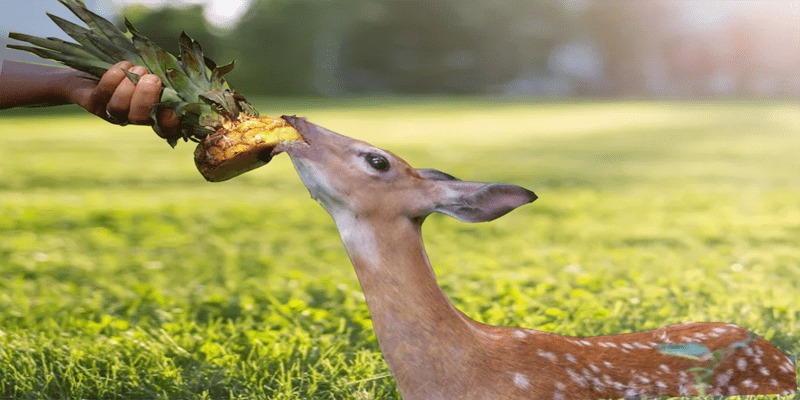
While pineapple is not a natural part of the wildlife diet in most regions where deer live, that doesn’t necessarily mean they won’t eat it if given the opportunity. Do deer eat tropical fruits? Yes — but mainly when they are accessible in gardens, farms, or as discarded food scraps.
Wild deer are curious feeders and may nibble on unusual foods when hungry or when regular food sources are scarce. However, eating pineapple in the wild is rare, as the fruit doesn’t naturally grow in temperate deer habitats.
Is Pineapple Safe for Deer?
The short answer: Yes, in moderation — but with caution.
Pineapple is rich in vitamin C, manganese, and natural sugars, all of which can be part of a balanced deer nutrition plan in very small amounts. However, it also contains high acidity and bromelain (a natural enzyme), which may cause mild digestive irritation in some animals.
Can Deer Digest Pineapple?
Deer have a complex four-chambered stomach designed for breaking down fibrous plants, not large amounts of acidic fruit. Small bites of pineapple are usually fine, but too much can lead to:
- Stomach discomfort
- Diarrhea
- Reduced appetite for normal foods
For this reason, pineapple should only be an occasional treat, not a staple in the deer diet.
Effects of Pineapple on Deer Health
Potential Benefits
- Hydration – Pineapple is 86% water, helping maintain hydration in hot weather.
- Nutrients – Offers trace minerals and antioxidants.
- Variety – Adds novelty to the deer fruit consumption profile, which can be enriching.
Possible Risks
- Digestive upset due to acidity
- Unbalanced diet if too much fruit replaces leafy greens
- Dental concerns if given in sugary excess
These factors highlight the importance of deer-safe foods and feeding them responsibly.
Deer and Pineapple – Feeding in Your Backyard!
If you live in an area where deer frequently visit, you may be tempted to offer them pineapple slices. While it’s not inherently harmful in small amounts, there are some things to consider:
- Moderation is key – A few small chunks, not an entire fruit.
- Remove the skin and core – These are tough, fibrous, and harder for deer to chew and digest.
- Avoid canned pineapple – The syrup and preservatives are harmful.
Backyard wildlife feeding should always prioritize deer feeding in the backyard with native plants, shrubs, and safe natural foods over store-bought produce.
Risks of Feeding Deer Pineapple
Beyond digestive concerns, feeding deer exotic fruits like pineapple can create dependency. Deer accustomed to human-provided food may:
- Lose natural foraging skills
- Become more vulnerable to predators
- Face conflict with humans in urban areas
It’s always better to supplement natural feeding rather than replace it entirely.
Deer Eating Behavior in the Wild vs. Captivity
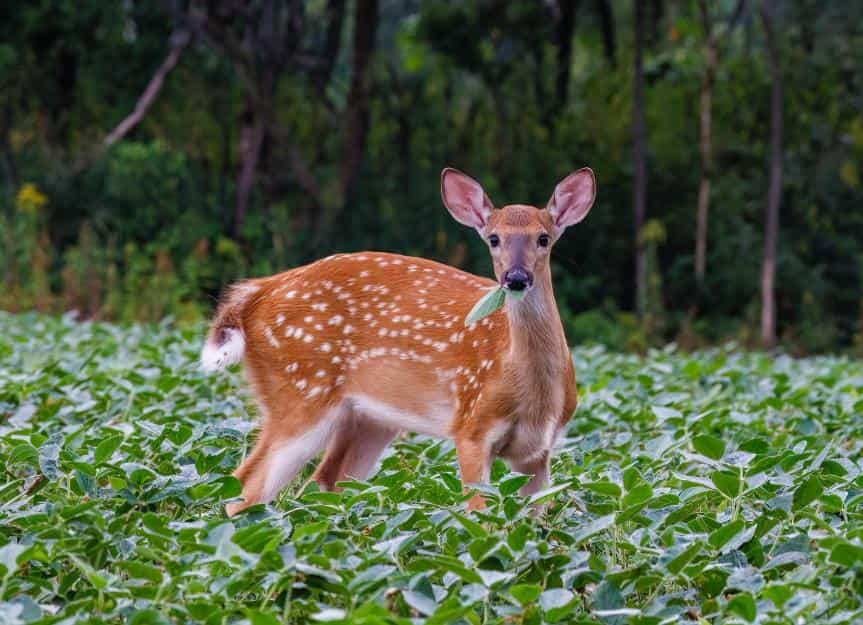
In the wild, deer forage for what’s available seasonally, rarely encountering non-native fruits like pineapple. In captivity, such as in wildlife parks or rehabilitation centers, small amounts of tropical fruits may be added to enrich the animal’s diet.
Deer eating behavior in the wild is cautious — they sample new foods in small amounts. In captivity, under human care, the diet can be more varied, but it should still be nutritionally balanced.
Other Animals That Eat Pineapple
While deer might occasionally consume pineapple, other wildlife and domestic animals are more familiar with it. Animals that eat pineapple include:
- Certain birds (parrots, toucans)
- Rodents (rats, squirrels)
- Some primates
- Farm animals like goats (in moderation)
Best Fruits Deer Can Eat Safely
If you want to provide deer-safe foods, here are some healthier and more suitable fruit options:
- Apples (sliced, seeds removed)
- Pears
- Plums
- Grapes
- Bananas (peeled)
These are easier on the deer digestive system and fruits than pineapple, making them a safer choice for frequent feeding.
FAQs:
1. Can deer eat pineapple skin?
No, pineapple skin is too tough and fibrous for deer to chew or digest. Always remove the skin before offering pineapple to ensure safe and comfortable eating for the animal.
2. How much pineapple can a deer eat safely?
A few small, skinless chunks once in a while are safe. Feeding large amounts can upset a deer’s stomach due to acidity and sugar content, so moderation is essential.
3. Can wild deer find pineapple naturally?
No, pineapple is a tropical fruit and does not grow in deer habitats. Wild deer only eat pineapple when humans provide it, often in backyard feeding or captivity.
4. Are there better fruits for deer than pineapple?
Yes, fruits like apples, pears, grapes, and bananas are gentler on a deer’s stomach. These fruits are easier to digest and better suited for regular feeding.
5. Does pineapple benefit a deer’s health?
In small amounts, pineapple offers hydration, vitamin C, and antioxidants. However, overfeeding can cause digestive discomfort, so it should never replace a deer’s natural plant-based diet.
Conclusion:
Deer can safely enjoy pineapple as a rare treat, offering hydration and nutrients like vitamin C. However, due to its high acidity and sugar content, it’s best given in small amounts and without the skin or core. Overfeeding pineapple can cause digestive issues and unbalance a deer’s natural diet. For healthier feeding, focus on native plants and deer-safe fruits like apples or pears. Supporting natural foraging habits helps maintain their health, survival skills, and balance within the wildlife ecosystem.
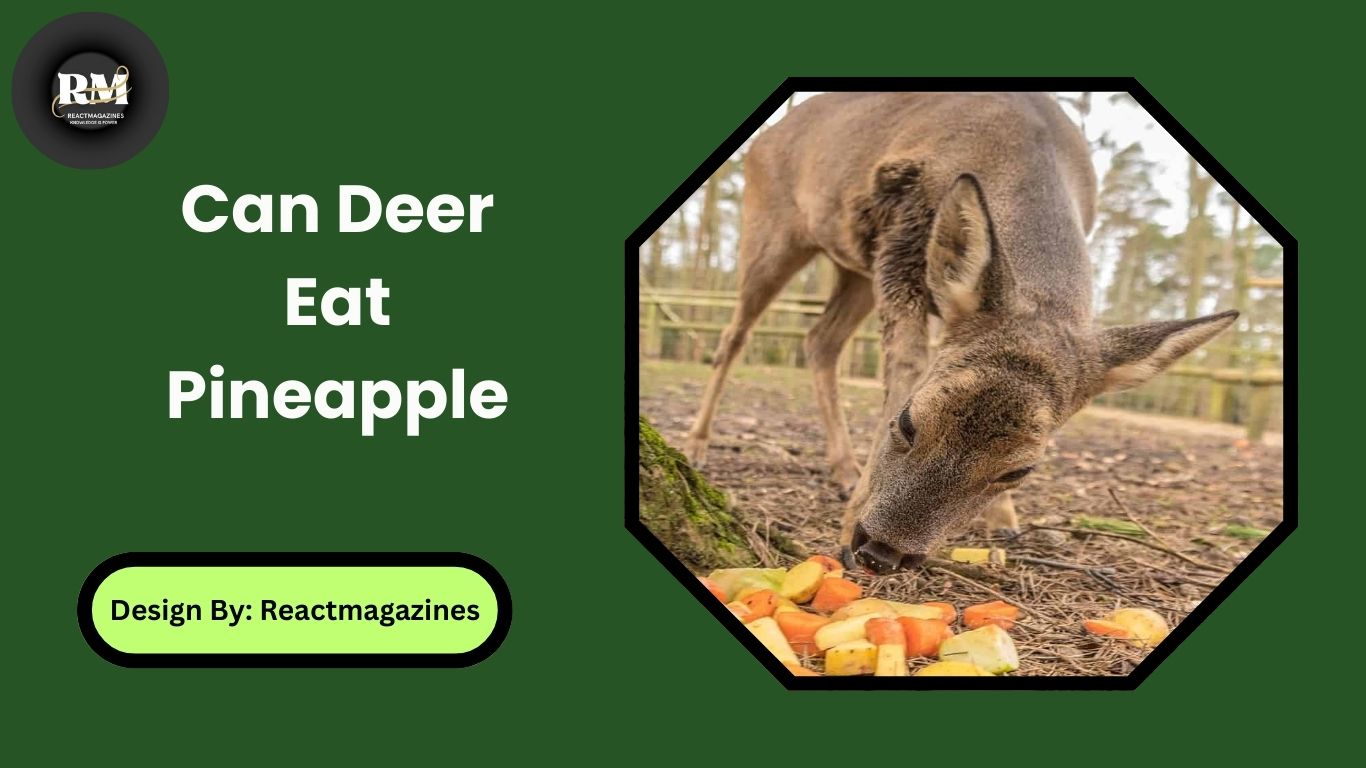
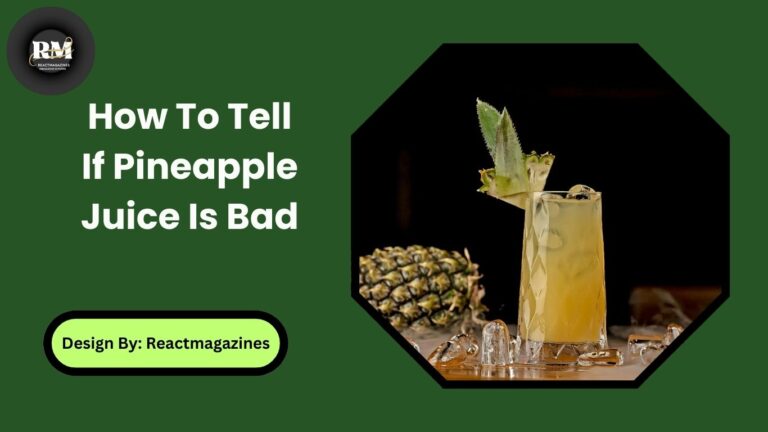
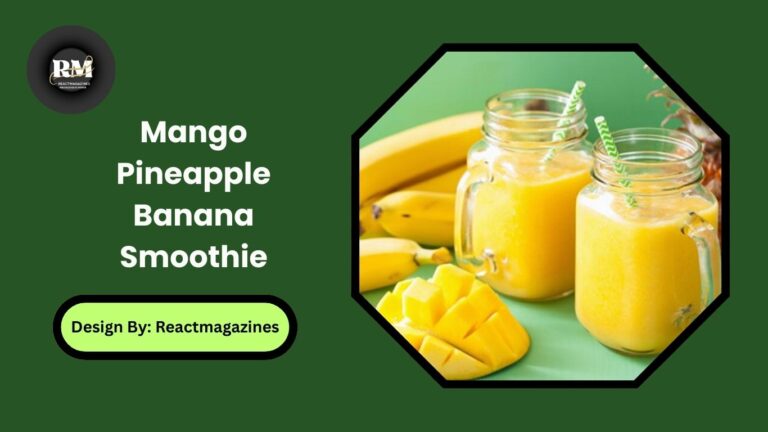
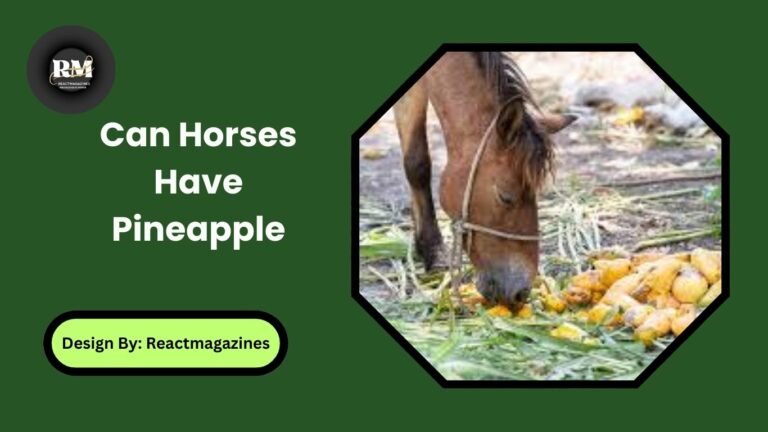


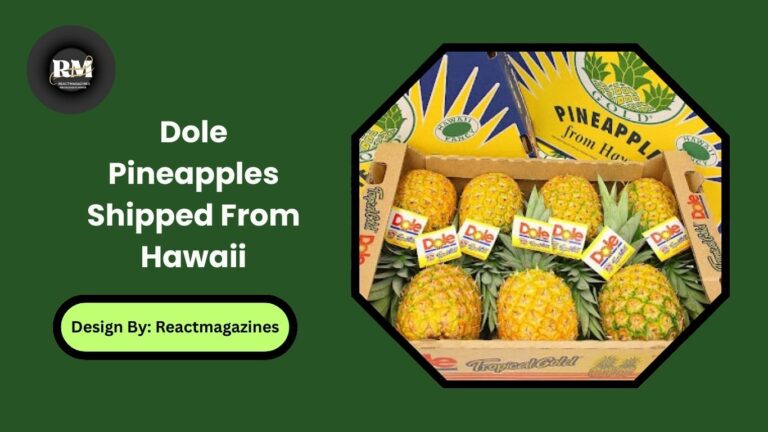
Hi, this is a comment.
To get started with moderating, editing, and deleting comments, please visit the Comments screen in the dashboard.
Commenter avatars come from Gravatar.